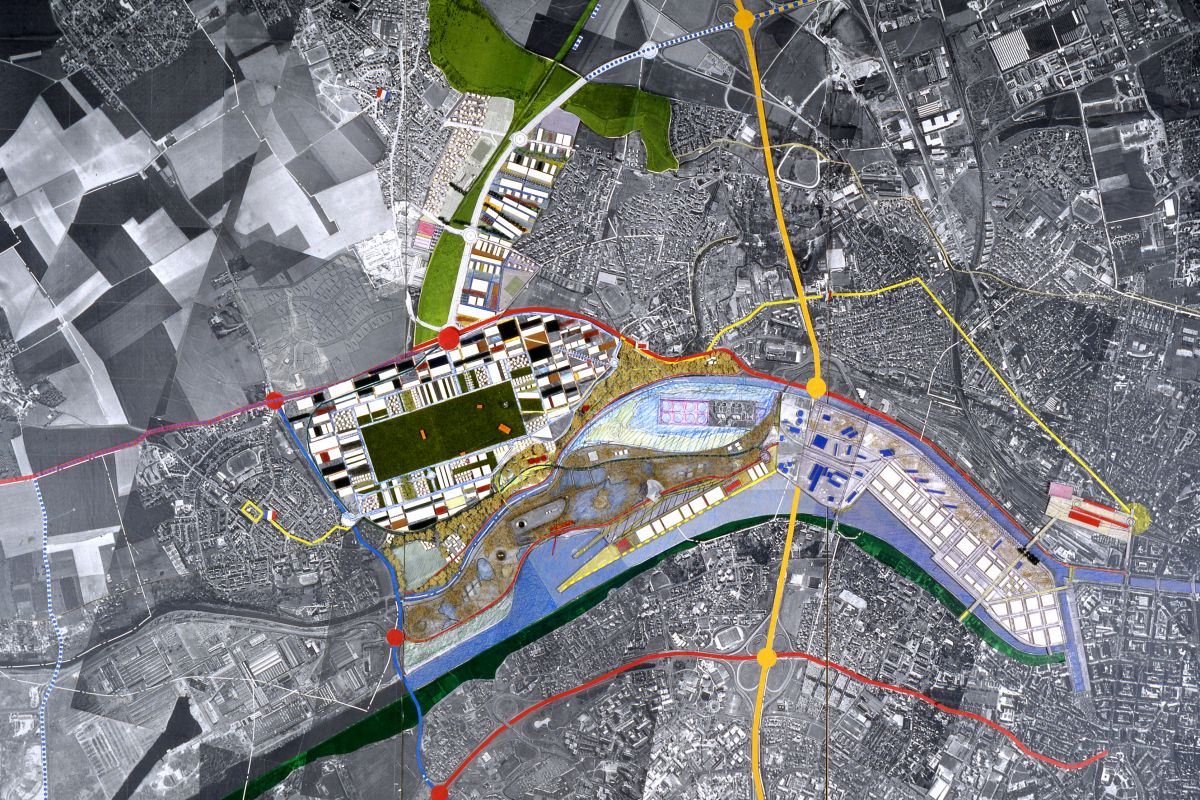The issue here was not so much historical as geographical. The
disappearance of an asset like the Société Métallurgique de Normandie (SMN) can
also create new opportunities which would help bring nature to the town.
To identify the assets and potentialities of the site and, proceeding
from these, to define what the future might hold. Here, no vast layouts, no
“new town,” but the savage desire to connect and reconnect nature and
architecture.
To detect three significant locations: the valley site, the plateau, the
ridge. Along the River Orne, a wide avenue planted with beautiful trees asks
for nothing more than being bordered by the continuum of buildings that defines
a town. On the plateau, traces of the former SMN facilities guide and prefigure
the lines interweaving countryside and urbanisation. At the head of the valley,
the layout of an old road that crossed the factory demands only to be linked to
the neighboring areas of the town. To attempt, then, to draw what is most
essential from each location. To devise a wide-ranging project that will blend
the different activities and, above all, be able to introduce other types of
relationship with nature. The project attempts to qualify the locations by
giving them an identity, a future.
The relationship between the plateau and the valley deserves protection,
respect and enhancement. The problem is not an absence, but an excess, of
ground. The redefinition of the town extends to the riverbanks and the
hillsides and, from there, to the entire site. Dominique Perrault | 1996
client District of Greater Caen
architect Dominique Perrault Architecte, Paris
location District of Greater Caen, banks of the river Orne, Normandie, France
site area 250 ha
period of conceptional design and study October 1994 - January 1997
program
• creation of data base (studies - maintenance)
• urban analysis (history and geography)
• urban development schemes, working out of sections on the banks of the river orne, creation of the control map of the urban development and of the zooning (north-east of the city)
• creation of a new landscape in the north-eastern part of the district (with transportation map)
• development of the industrial areas which had been deserted after the disappearance of the iron and steel industry

